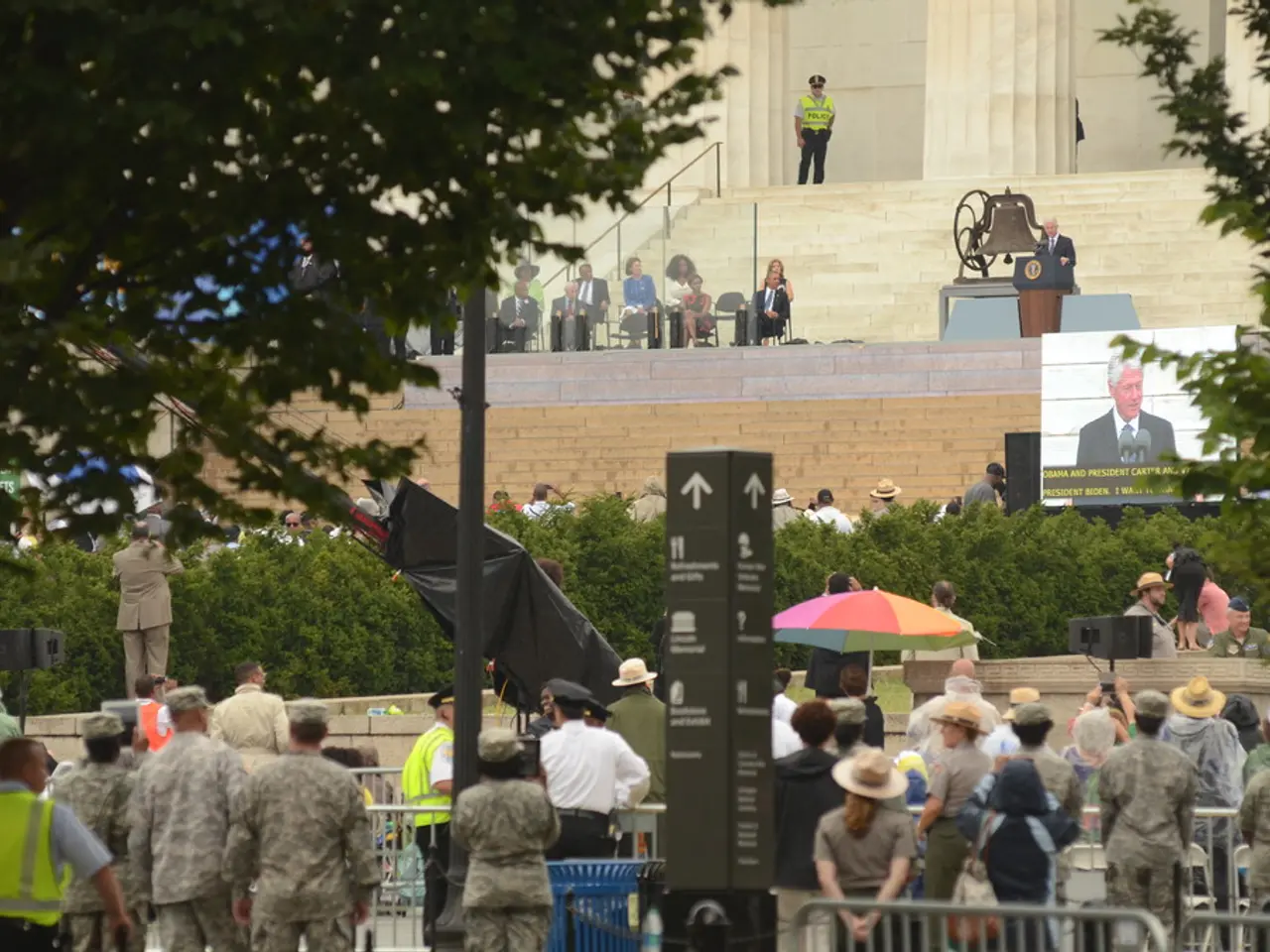Homeless individuals in Washington D.C. are instructed by Donald Trump to vacate the area promptly.
In a move that has sparked controversy and debate, US President Donald Trump has announced plans to boost law enforcement and address homelessness in Washington, D.C.
According to reports, overall crime in the city has decreased by about 7% in the first seven months of 2025, compared to the previous year. However, on Friday night, federal agents were seen investigating crimes such as unlicensed carrying of pistols, suspended motorists, and dirt bike riding.
Trump's plan includes a federal takeover of the Washington, D.C. police force, with approximately 800 National Guard troops set to be deployed. This move, while aimed at cracking down on violent crime and homelessness, has been met with resistance from local officials, including Mayor Muriel Bowser, who maintains that the city is not experiencing a crime spike.
Trump's broader policy approach includes treating homelessness and mental illness as crimes, a move widely condemned by homelessness advocacy groups. His proposed 2026 federal budget plan even aims to eliminate the Continuum of Care program, a key initiative in helping cities reduce homelessness by moving people into permanent housing.
Despite the controversy, Trump has pledged to evict homeless people from the city and jail criminals. However, it's important to note that most homeless individuals in Washington, D.C. are already in emergency shelters or transitional housing, rather than on the street.
The deployment of National Guard troops and the eviction of homeless people are still under consideration, with Trump yet to make a final decision. If implemented, it would likely require Congress to pass a law revoking the law that established local elected leadership.
The deployment of National Guard troops in Washington, D.C. is a controversial tactic that Trump has used previously. Meanwhile, the number of homeless individuals in Ireland has reached a new record high of 15,915.
As the situation unfolds, it's clear that Trump's plans for Washington, D.C. are facing legal, political, and humanitarian criticism. The plans include federal efforts to remove homeless encampments and increase policing, but concerns about legality, effectiveness, and the potential exacerbation of homelessness through cuts to supportive housing programs remain.
- The controversial plans proposed by President Trump for addressing homelessness and crime in Washington, D.C. involve not only increased policing but also a policy shift that treats homelessness and mental illness as crimes – a move that has sparked substantial criticism from political, legal, and humanitarian sectors.
- In addition to the planned federal takeover of the Washington, D.C. police force, which has provoked resistance from local officials, Trump's proposals also entail stricter law enforcement measures, such as the boosting of crime investigation in general news, focusing on crimes like unlicensed gun carrying, motorist violations, and dirt bike riding, all of which fall under the category of crime and justice.






